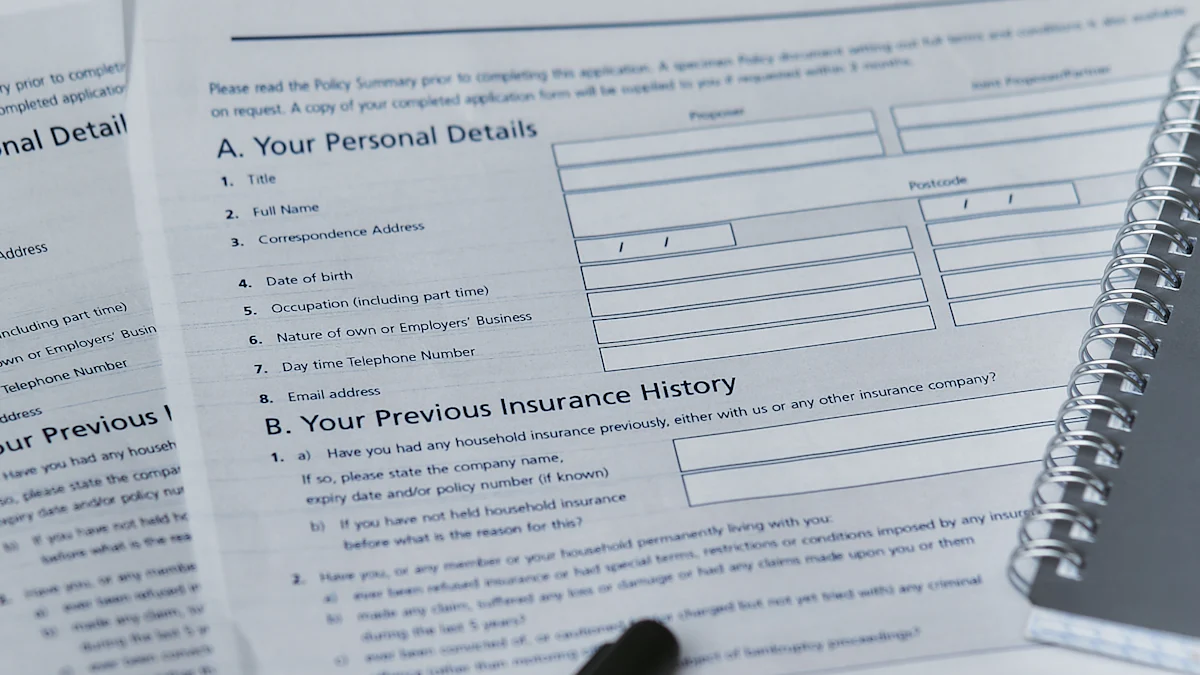You might be curious whether insurance settlements are taxable and if the IRS is paying attention to yours. The answer varies based on the type of settlement. For instance:
- Physical property damage? Typically not taxable.
- Non-physical damages? That could be a different situation.
IRC Section 104 excludes certain settlements, but IRC Section 61 highlights that exceptions are important to consider when determining if insurance settlements are taxable.
Key Takeaways
- Most insurance settlements for physical injuries or illnesses are tax-free, including compensation for medical expenses and lost wages.
- Punitive damages and interest earned on settlements are always taxable, so be sure to report these amounts on your tax return.
- Consulting a tax professional can help you navigate the complexities of taxable settlements, ensuring you report accurately and maximize potential deductions.
Understanding Taxable vs. Non-Taxable Settlements

Non-Taxable Settlements
Not all insurance settlements are taxable. Some are like a free pass from Uncle Sam. Settlements for physical injuries or illnesses fall into this category. If you received compensation for a broken arm or a nasty flu caused by someone else’s negligence, you don’t owe taxes on that money. The IRS sees this as making you whole again, not making you richer.
Medical expenses tied to physical injuries also escape taxation. Did you rack up hospital bills after an accident? The settlement covering those costs is tax-free. Lost wages due to physical injuries? Also tax-free. Even pain and suffering related to physical injuries usually dodge taxes.
However, there’s a catch. If your settlement includes punitive damages, the IRS wants a piece of that pie. Punitive damages are always taxable, no matter the case. And if your settlement earns interest while you wait for the check, that interest is taxable too.
Taxable Settlements
Now, let’s talk about the settlements that make the IRS smile. Punitive damages top the list. These are meant to punish the wrongdoer, not to compensate you. So, they’re taxable.
Interest on settlements is another taxable item. If your settlement money sat in an account and earned interest, that interest counts as income.
Compensation for emotional distress unrelated to physical injuries is also taxable. For example, if someone defamed you and you received a settlement, you’ll need to report it as income. Employment-related settlements, like lost wages or severance pay, are taxable too. Even business interruption insurance settlements that cover lost profits fall under taxable income.
In short, if the settlement feels more like income than reimbursement, it’s probably taxable.
Types of Insurance Settlements and Tax Implications

Personal Injury Settlements
When it comes to personal injury settlements, the IRS usually gives you a break. These settlements are generally tax-exempt, especially if they cover physical injuries or sickness. For example:
- Compensation for medical bills? Not taxable.
- Payments for pain and suffering tied to physical injuries? Also not taxable.
- Lost wages due to an injury? Still tax-free.
But here’s the twist. If your settlement includes punitive damages, the IRS steps in. Punitive damages, meant to punish the wrongdoer, are taxable. Interest earned on the settlement while you wait for the payout? Taxable too. So, while most personal injury settlements avoid taxes, a few exceptions might sneak in.
Property Damage Settlements
Property damage settlements usually don’t trigger taxes. If someone wrecked your car or damaged your home, the settlement money to repair or replace it isn’t taxable. However, things get tricky with business property or income-producing assets. For example, if you receive compensation for lost profits from damaged business property, that portion is taxable. Always check the details of your settlement to avoid surprises.
Emotional Distress Settlements
Emotional distress settlements can be a mixed bag. If the distress stems from physical injuries, the settlement is tax-free. But if it’s unrelated to physical harm, like in defamation cases, the IRS considers it taxable income. Medical expenses for emotional distress? Those are non-taxable, as long as you didn’t previously deduct them.
Lost Wages Settlements
Lost wages settlements are treated like regular income. If you’re compensated for wages you would’ve earned, the IRS taxes it just like your paycheck. These settlements are subject to income tax, Social Security, and Medicare taxes. Employers often report them on a W-2 form, so don’t forget to include them in your tax return.
Managing Taxes on Insurance Settlements
Reporting Taxable Settlements
So, you’ve got a taxable settlement, and now Uncle Sam wants his share. Don’t panic! Reporting taxable insurance settlements isn’t as scary as it sounds. First, figure out which part of your settlement is taxable. For example, if you received money for lost wages or punitive damages, you’ll need to report that. The IRS considers these as income, so they must go on your tax return.
Next, grab the right forms. If your settlement involves lost wages, your employer might send you a W-2. For other taxable amounts, you’ll likely need to use Form 1040. Keep all your paperwork handy. Settlement agreements, tax forms, and any correspondence with the insurance company can help you avoid mistakes.
Finally, double-check your math. The IRS loves accuracy. If you’re unsure about how to report your settlement, don’t guess. Mistakes can lead to penalties or audits, and nobody wants that.
Consulting a Tax Professional
Feeling overwhelmed? You’re not alone. Tax laws can feel like a maze, especially when it comes to figuring out if insurance settlements are taxable. That’s where a tax professional comes in. These experts know the ins and outs of tax codes and can help you navigate the process like a pro.
A tax professional can review your settlement details and identify which parts are taxable. They’ll also ensure you’re not overpaying or underreporting. Plus, they can help you find deductions or credits you might have missed. Think of them as your personal tax superhero, swooping in to save the day.
Hiring a professional might cost a bit upfront, but it can save you money (and stress) in the long run. So, if your settlement feels complicated, don’t hesitate to call in reinforcements.
Most insurance settlements won’t bother your tax return, but a few exceptions might surprise you. Knowing the tax rules helps you avoid trouble. You don’t want the IRS knocking, right? For tricky cases, call a tax pro. They’ll keep you on the right side of the law and save you headaches.
FAQ
What happens if I don’t report a taxable settlement?
🚨 Heads up!
The IRS doesn’t play games. Failing to report taxable settlements can lead to penalties, interest, or even audits. Always report taxable amounts to stay safe.
Are attorney fees from my settlement deductible?
Not always. If your settlement is taxable, you might deduct attorney fees. For non-taxable settlements, though, no deductions apply. Check with a tax pro for clarity.
Do I need to keep settlement-related documents?
Absolutely! Keep everything—settlement agreements, tax forms, and receipts. These documents protect you if the IRS asks questions later. Better safe than sorry, right?

